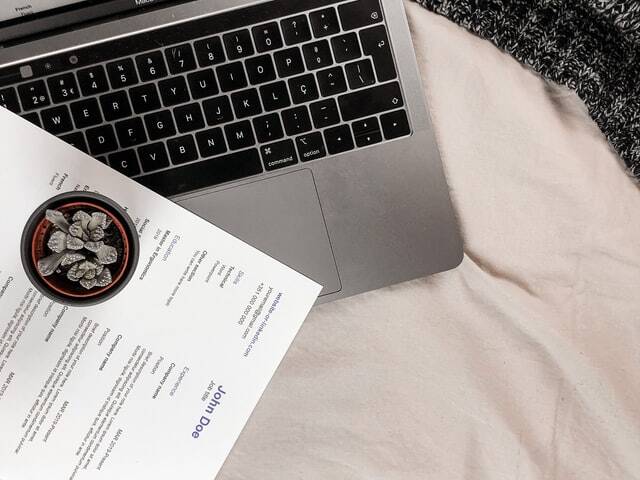Here at PenningPapers, we’ve seen people go through the same thought process every year: “I’ve just been rejected from medical school. Now what? What do I do?”
We set this guide up as a step-by-step process. Getting rejected from medical school sucks. Seriously. We get it too!
There’s still hope, at the end of the tunnel. We’re not just saying this to be overly optimistic. There’s still a lot that you can do after learning you were rejected from medical school, but you need to follow exactly what we’re saying.
There are three main points you need to consider: making a game plan, analyzing your application strengths and weaknesses, appeals/reapplication processes. Before we get to the guide, let’s cover a few things one more time.
You are going to be okay.
Burn this into your head. There are so many delusions surrounding the medical school application process that get into people’s heads. Ego, pride, shame, guilt, depression. This can very easily ruin your next steps. Sure. You were rejected from medical school and you don’t really know what to do. Though, it’s important to breathe. We’ve worked with students in the past who were rejected from every medical school option they applied for. They’re doing just fine now.
Take a breather. Good? Good. Stick with me, and you’ll do just fine.
Okay, let’s get started.
Table of Contents
- Making a game plan
- Analysing your Application’s Strengths and Weaknesses: Or, Why Did I Get Rejected From Medical School?
- Appeals/reapplication processes
Making A Game Plan

If you’ve been rejected from medical school, you may fall under one of many types of people: the kinds who went all-in on their medical school plan. This is the quintessential medical school experience. We take advice from our parents to be doctors, we follow everything they say, we grind it out through the STEM courses whilst crying over our Organic Chemistry finals, and never consider what would happen if were rejected from medical school.
The next step after getting rejected is making a game plan.
Here’s what we recommend you do. If you’ve been rejected from medical school, try to follow these steps to the best of your degree.
- Figure out whether you’d be willing to continue pursuing medical school.
- If you don’t want to pursue medical school…
- List out what careers you know you can’t handle
- List out the careers you know you have an advantage at: (what am I good at? what job plays to my strengths?)
- Of the careers you have an advantage in, consider weigh your options. Do they have good vacation time? Is the work strenuuous? Does the career path have good upward mobility such as promotions and raises?
- If you still want to pursue medical school…
- Deconstruct your application. What was wrong with it and how did it play into your rejection?
- Lay out each factor in your application and calculate how you can improve each factor. (MCAT, GPA, Essays, Extracurriculars)
- Consider speaking with a professional academic counselor on improving each admissions factor.
Hint: Don’t be hasty about speaking with a professional medical school admissions counselor. Instead, get their free consultations first. We recommend getting a free consultation and application review from us. We can lay out your game plan for you and guide you step-by-step on how to maximize your chances of success during the next medical school season application.
If you’re not looking to pursue medical school but you still want someone to help you develop a game plan, don’t worry. Contact us for a free consultation, and we can help you set up a game plan for the next few years. Figuring out what you want to do is hard, we know! That’s why we provide free consultations for everyone!
As for those who still want to pursue a career in medicine after getting rejected from medical school, let’s cover the next steps to take.
Analyzing Your Strengths and Weakensses: Or, Why Did I Get Rejected From Medical School?

What gives? Everything was perfect! I had the perfect GPA, I was in every club, I aced my MCAT test, I was the best student anyone could ask for! Yet I was rejected!
–Every aspiring medical student ever
Aside from the fact that the essays are now playing a more important role in admissions now than ever before –which we’ll get to in a bit– let’s cover each of the items that go into your admissions decisions.
GPA
Alright, let’s talk numbers. Here’s some stats from the Association of American Medical Colleges.
- Mean GPA
- 2018 – 19: 3.57
- 2019 – 20: 3.58
- 2020 – 21: 3.6
- 2021 – 22: 3.59
- Standard Deviation GPA
- 2018 – 19: .34
- 2019 – 20: .33
- 2020 – 21: .33
- 2021 – 22: .34
So, what can we make out of this data?
Roughly speaking, you should be performing at or above the median GPA. However, you may notice that even those who have a GPA far above the mean were also rejected from medical school. You may have heard of the student with near-perdect marks who just couldn’t get accepted anywhere, right?
This shows that students can get rejected even with high GPAs. In that case, there’s nothing much that can be done. However, if you fall behind the curve, your GPA may be one of the reasons you were rejected.
Many students who get accepted have strong enough GPAs and MCAT scores. Some schools even have a minimum GPA and MCAT score requirement before students even have a chance to be considered. Thus, improving your GPA and MCAT score should be at the top of your priority. Make sure to put some time into improving your GPA and studying for the MCAT.
If you have a low GPA and were rejected from medical school, consider taking a Postbaccalaureate program. The extra courses will not only increase your GPA, but also show that you can make an upward trend in your academic performance over time.
The goal of a high GPA is to show the admissions officers that they can trust you with a difficult course load. Medicine is no easy career path, and there’s a reason the field has a high barrier of entry. When working with health-related careers, smart workers are a must –espeically if one’s life is on the line. If you show that, over time, you can earn a better grade in courses through a Postbaccalaureate program, the admissions officers will trust that you can handle medical school and therefore the medical field.
MCATs
Again, let’s take a look at what the Association of American Medical Colleges has to say about MCAT scores.
- Mean MCAT
- 2018 – 19: 505.6
- 2019 – 20: 506.1
- 2020 – 21: 506.4
- 2021 – 22: 505.9
- Standard Deviation MCAT
- 2018 – 19: 9.3
- 2019 – 20: 9.3
- 2020 – 21: 9.2
- 2021 – 22: 9.7
Just like with the GPA, the mean MCAT scores for applicants have barely changed. You will need to score at or above the 505-6 range. The maximum MCAT score is 528. In order to get accepted into medical school, you will certainly need a high MCAT score; if you cannot do this, make sure your GPA can compensate for a low score.
If you cannot score at or above the mean MCAT score, or simply want to improve your MCAT score overall, you may want to consider contacting us. We can provide you with a free consultation that includes…
- A free study plan based on your strengths and weaknesses.
- A custom set of resources for referral.
- Free advising from real MCAT tutors
Essays
The AMCAS personal statements are not to be taken lightly.
Remember: your admissions officers are not just regular undergraduate admissions officers. There is a level of responsibility in accepting a student into medical school. If the institution accepts students who have bad medical school essays, they may be accepting students who are undeserving of getting into the medical field. This is not just a major disservice to other applicants, but the general public which relies on the best nurses, the best doctors, and the best practitioners.
The medical school essays are a window into you as a person, but are also used to screen your fit for medical school. You need to have a sophisticated way of approaching the essays that will help you stand out from the crowd. Note that there are plenty of very smart students who would give everything to attend medical school. Thus, you need to write strong essays that can show you are a unique candidate.
If you’ve been rejected from medical school and are looking to apply a second time, you need to consider the quality of your essays. Are they generic? Are there red flags such as family pressure or selfish desire that can be read between the lines of your essays?
Let’s take the AMCAS personal statement prompt for instance.
Personal Comments Essay: AMCAS pg. 57
“Consider and write your Personal Comments Essay carefully; many admissions committees place
significant weight on the essay. Here are some questions that you may want to consider while writing
the essay:
• Why have you selected the field of medicine?
• What motivates you to learn more about medicine?
• What do you want medical schools to know about you that has not been disclosed in other
sections of the application?
In addition, you may wish to include information such as:
• Unique hardships, challenges, or obstacles that may have influenced your educational pursuits.
• Comments on significant fluctuations in your academic record that are not explained elsewhere
in your application.
Notice how the personal comments essay asks open-ended questions? You can’t just regurgitate the exact some content that everyone else has. These essay questions are asking you to open up about your pursuit of medicine, and you can’t just scratch the surface.
When we talk with our clients, we notice that there is a lot more to their reasons behind selecting the field of medicine than they had originally realized. It takes a lot of brainstorming and deep insight to provide a meaningful answer to these questions that will sway the admissions chances to your favour. You should be spending at least a few days brainstorming and experimenting with different essay ideas before writing your final draft.
If you were rejected from medical school, you should also consider sending in your application and essays early. We recommend any time in early or mid June. If you can’t do early June, try to settle for mid June. A strong essay is better than a weak and early essay.
Also note that the medical school essays are not like what you would put in a resume or a CV. The medical school essays are an opportunity for admissions officers to dissect your brain –no pun intended. You’ll need to open up about yourself and perhaps even do a bit of digging into why you would want to enter medical school to begin with. When we work with clients, we typically do a free brainstorming session asking them the following questions (though, they’re not always the same).
- What ACTUALLY motivates you to attend medical school? Money and notoriety are probably not the right answers, and so is family pressure. You’re an adult. You could have chosen any field; nonetheless, you stuck with medicine for some reason. Why? Is there some deep mysterious wish in your heart that medicine fulfills?
- Is there something about you that hasn’t been show in any other parts of your application? How does this information give more reasons for the admissions officers to accept you as an applicant?
- What are some reasons you think you don’t deserve to go to medical school? Be honest. But, don’t beat yourself up too much. Just be as accurate as possible. Imagine yourself in the admissions officer’s shoes. Would you accept yourself? Why?
- Are there any unique circumstances such as familial hardships or medical issues that could have impacted your academic performance negatively? More importanlty, how do we know that you will continue to perform well if you’ve gone through these circumstances?
- Are there strange anomollies in your academic performance such as big dips or spikes in your GPA? From what we’ve seen in our clients, we’ve seen people with major dips and spikes in GPA. This could indicate a lack of predictability in academic performance. If this seems accurate to your GPA, you’ll need to explain it in your application.
If you feel that you need extra help with your application essays, consider having a free review of your essays! We will get back to you within 24 hours!
Extracurricualrs
Here’s the thing about clubs when it comes to getting accepted into medical school: if you applied for a club half-heartedly the quarter prior, it’s probably going to be a bad look on you.
At best, the admissions office doesn’t think anything of it. At worst the admissions office belives you’re trying to game the system because you’re not truly dedicated to the extracurricular activity.
If you want to use extracurricular activities to your advantage during the medical school admissions process, you need to have some level of commitment and leadership. Not only that, but there should be some form of result that came about it. For instance, let’s say you were the president of a club and held the position for a few years as an undergraduate. That may be alright; however, what matters more than the position itself is what happens in the club.
If you 3D printed materials and resources such as masks for the Coronavirus pandemic, for instance, then you’ve shown that your club isn’t all just talk. You show the admissions officers that you actually are dedicated to getting results beyond the empty platitudes of titles.
Submitting Your AMCAS Medical School Application Too Late
It’s completely normal. Students are human, and humans have the proclivity to tell themselves that they have enough time to complete something knowing full well that they don’t. It doesn’t make it okay; after all, that’s how they get rejected from medical school.
As we stated before, we recommend that you submit your AMCAS application around early or mid June. Seriously. It doesn’t matter how strong your GPA, MCAT score, essay, and extracurriculars are. Interview spots will fill up. Class spots will fill up. By the tail end of the application cycle, the medical program you’re applying for may reject you simply because they just don’t have room for you.
Now, the inverse is also true: if you apply early, you may have the chance to get accepted into a reach school that you originally didn’t think you’d get accepted into!
Of course, there’s a balance to be had here. Don’t just assume you can rush your application. In other words, don’t sacrifice quality for time. You need to have a quality application if you’re going to get accepted. So, take your time with your essays and personal questions in your medical school application.
Appeals / Reapplication Process

When you’ve figured out a game plan for your next steps, and you’ve dissected the reasons why you’ve been rejected, the next step is to prepare for the next application cycle.
Sure, you probably won’t have enough time to resubmit your applications in early June when you’ve just received your rejection in April. Don’t worry about taking a gap year to reconfigure your application before submission once more! In the meantime, consider also revamping these factors:
- Be Early. Repeat after me: BE EARLY. You can’t afford to send in your applications June. You’ll be given the short end of the stick and competing against all the rest of the students who applied late. You need to secure an early spot. Do it.
- Apply for more schools. Yeah, medical school applications can get quite pricy when they stack up over time. But, truly think about this. If you’re reapplying for medical school after having been rejected, this is not a time to count pennies. You’re in investment time. This is an investment to a future in medicine, much like how starting a business requires initial startup capital. You should apply for 20 schools. However, if you can, 25 is best. If you can’t afford 20-25 schools, consider the AAMC fee assistance program.
- Address any specific issues. For some applicants, they were rejected because they had a poor GPA or a poorly-written set of essays. For some, they simply have poor interview skills. If that’s the case, you may want to contact our team at PenningPapers. We can redirect you to the best services that could help you prepare for your next medical school interview.
- Contact the institutions that rejected you for feedback. Sure, you may want to lick your wounds first before continuing to contact the admissons office. Nonetheless, this is something worthwhile to do! Note that not every school is going to be open to providing you with advice on how to improve your application and where you were lacking. However, you can be sure that at least one school will be willing to tell you how to better improve your admissions chances. Of course, certain schools have different criteria. One may ask for more leadership skills and extracurricular activities, whereas others may want you to be more involved in research.
Realistically speaking, if you were rejected from medical school, we would heavily advise speaking with a medical school admissions advisor. Contact us for a free consultation! We can get back to you within 24 hours and help you set up a free plan plus detailed advice on how to best increase your chances during the next admissions cycle.

